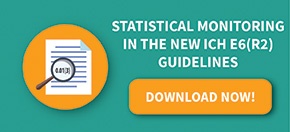
*** Please note that the ICH GCP Addendum R2 is now superseded by the ICH E6(R3) update with draft guidance being published in May 2023***
The ICH Guidelines for Good Clinical Practice (E6) has morphed into the international standard for clinical trial conduct since its inception twenty years ago. However, within that period, clinical research has changed dramatically and it is a credit to it’s authors that ICH GCP remains relevant today, with only one previous notable update seen in response to electronic data capture (EDC) technologies being widely utilized by the industry.
The impetus for change has been motivated by; the advent of new technologies such as web based solutions for the recording of clinical trial data, increasingly complex protocols and new IMP’s requiring more complex analyses to fulfil trial outcomes. A combination of these factors has contributed to ICH GCP E6 being amended for the second time, which seeks to dispel some of the ambiguity surrounding these components of clinical trials. The E6 addendum (R2) sets out to achieve this. The ICH website states the aim: “to enable implementation of innovative approaches to clinical trial design, management, oversight, conduct, documentation, and reporting that will better ensure human subject protection and data quality”.
Whilst we strongly suggest reading the document itself, the following will serve as an introduction to some of the changes which are proposed. The version of the guideline discussed here is the most recent version (step 4) with regulatory implementation (step 5) most likely occurring in mid-2017.
Delegation of Responsibilities and Tasks by Investigators
Delegation by investigators is addressed and the responsibility is reinforced, with a reminder that the Principle Investigator (PI) is “responsible for supervising anyone to whom they delegate tasks”. This statement suggests active oversight, as opposed to receiving periodic updates on tasks performed by the trial team. In addition, the PI must ensure any party performing study tasks is qualified and must implement procedures to ensure the integrity of study tasks and data. Sponsors and Clinical Research Organizations (CROs) will have to ensure such procedures are in place to meet this oversight need. The investigator will also be responsible for ensuring the quality of documents and the data therein supplied to the sponsor.
Risk Management
Additional requirements further to those currently requested, are asked of the sponsor with respect to managing risks. Risk based trials were mentioned in the original ICH guidelines, this however has been greatly enhanced. An entire section on Quality Management has been added, as the first section addressed to the sponsors (section 5.0).
The most important amendments are detailed below:
- Methods to assure and control quality of trial should be proportionate to the inherent risks and importance of the information. This includes quality by design and risk based trials in all aspects, not just including monitoring.
- Sponsors are urged to avoid unnecessary complexity, procedures and data collection. This is a frequent cause of clinical trial problems, and it will be interesting to see if regulators similarly push for simplification of trials.
- The specific section on risk covers the following areas:
- Identification
- Evaluation (based on likelihood of an issue, its potential impact, and the ability to detect the problem)
- Control (predefined quality tolerances)
- Communication
- Review
- Reporting (in the CSR)
Technology and Validation
Sponsors are being asked to adopt new technologies and the guidelines show how to recognize the need for innovation within clinical trials and new technology developments. This amendment attempts to dispel ambiguities as recently we have witnessed the proliferation of electronic systems in trials without any real directive in ICH GCP. The guideline now requires SOPs be written for set-up, installation, use, system validation, maintenance, and backup amongst others. A long list has been added to the existing list in 5.5.3. The responsibilities of the sponsor and the investigator for the use of each e-system should be clear, and therefore documented.
E-system validation is mentioned and the aims of validation reaffirmed as to ensure accuracy, reliability and further to give a consistent performance. As has always been the case, all users must be trained (this will need to include inspectors).
In keeping with the focus on risk and its assessment, clinical monitoring must be dynamic to improve its effectiveness and efficiency. Centralized monitoring is recognized with the aim of identifying missing data, inconsistencies, outliers, and a lack of variability. The use of statistics is encouraged to identify trends, looking at the range and consistency of data across sites.
The guideline requests that monitoring plans emphasize critical data and processes, giving a rationale for their selection. It suggests that applicable policies and procedures are referred to in support of the plan. It is worth noting that inadequate justification of monitoring sampling plans has been the recent cause of many inspection findings.
Sponsors must have demonstrable oversight of tasks delegated to CRO’s
Sponsors must now maintain oversight of tasks delegated to CROs. Therefore, CROs will have to provide effective systems for transparency of data and tasks to enable effective sponsor oversight. In response to this, sponsors will need to employ oversight systems for tasks assigned to third party vendors. CROs utilizing subcontractors will also need to firstly seek the sponsor's approval on delegation of the said responsibility or task.
Quanticate welcomes the update of E6, and the changes which will facilitate its application to electronic systems. The acknowledgement of risk-based and centralized trial activities is helpful and will keep the guideline in tune with many recent regulatory and technological developments. Find out more about our remote monitoring solution here.
Request a Consultation
Related Blogs
- Remote Monitoring During Clinical Trials, a Risk Based Approach
- The Rise of Risk Based Monitoring in Clinical Trials
- The Rise of Risk Based Monitoring [Infographic]
- The Evolution of Risk-Based and Remote Monitoring



